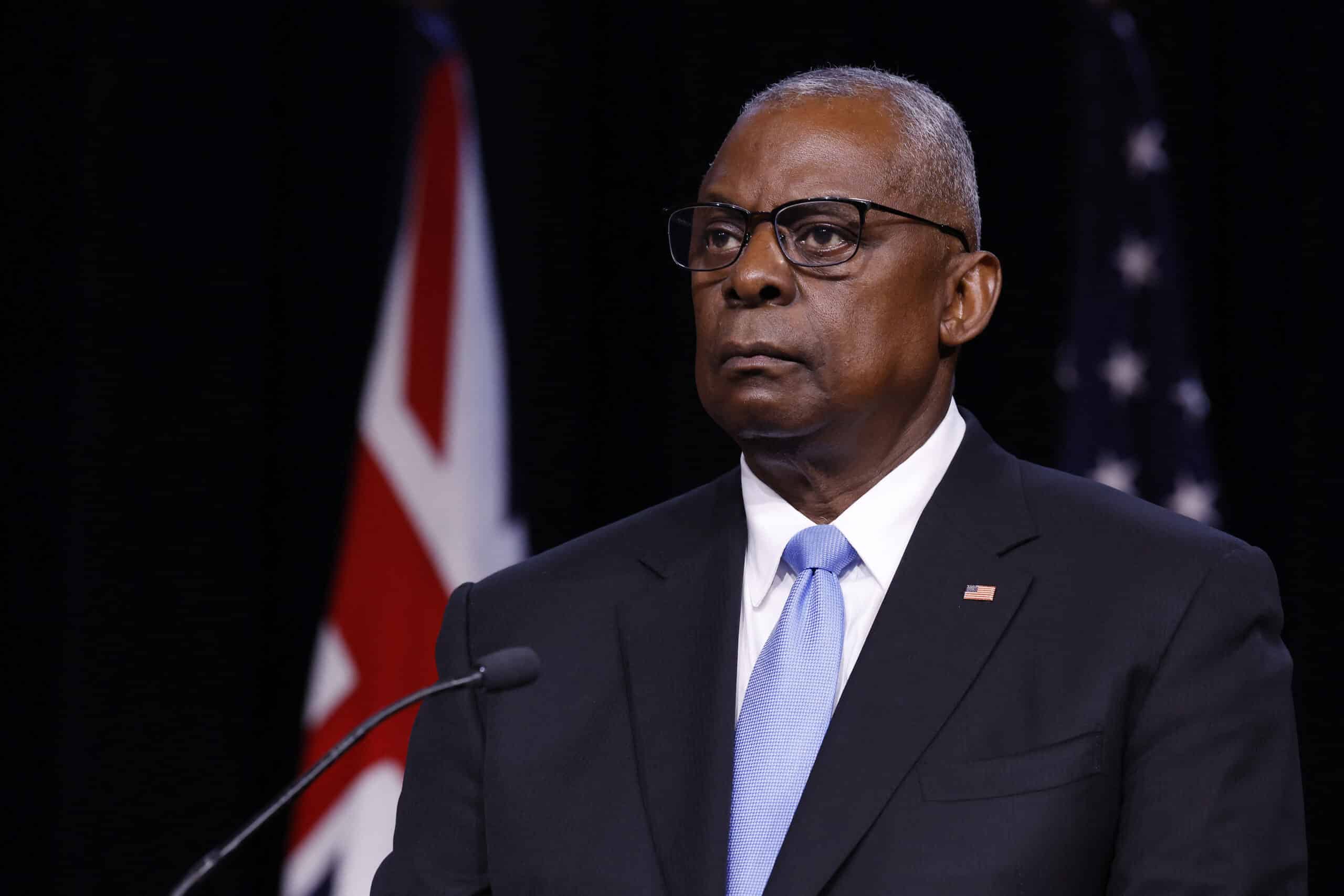
Secretary of Defense Lloyd Austin (File photo by CHIP SOMODEVILLA / GETTY IMAGES NORTH AMERICA / Getty Images via AFP)
MANILA, Philippines — The “strength” of the United States’ alliance with the Philippines will “transcend” any changes in the administration of the global superpower.
Outgoing US Secretary of Defense Lloyd Austin III made the remark as he stopped by Palawan province Tuesday to oversee equipment turnover in line with Washington’s pledge of $500 million (P29.3 billion) worth of military and security support to Manila.
Austin was asked if the administration of President-elect Donald Trump would still deliver on providing the half-a-billion worth of military support, which outgoing Secretary of State Antony Blinken once called a “once in a generation investment.”
READ: US to allocate $500 million in foreign military financing for PH
While refusing to speculate as to what the Trump administration would do, Austin noted that he observed strong bipartisan support for the Philippines among American lawmakers.
“I believe that [the Philippines] will remain an important country to us for many, many years in the future,” Austin said in a press conference at Western Command headquarters in Puerto Princesa City. “And the strength of our alliance, I think, will transcend changes of administration.”
Before this, Austin was in Manila on Monday to meet Philippine counterpart Gilberto Teodoro Jr., who signed the General Security of Military Information Agreement, a deal allowing the real-time sharing of highly classified intelligence and technology.
READ: PH, US seal intel-sharing pact during Austin visit
Austin’s stop in the country is part of his final trip to the Indo-Pacific region before being succeeded by Trump’s pick Pete Hegseth, a military veteran and television presenter.
Trump also named Florida Sen. Marco Rubio, one of the most outspoken senators against Beijing, as the new secretary of state.
READ: Trump set to name Marco Rubio secretary of state – NYT
Rubio introduced the US-Philippines Partnership Act of 2024, a bill that sought to prop up support for Manila amid Beijing’s aggressive actions in the West Philippine Sea.
This aligns with Manila and Washington’s Mutual Defense Treaty, which calls for each other’s defense in case of an armed attack.
Beijing asserts sovereignty in almost the entire South China Sea, including most of the West Philippine Sea, even if such a claim has been effectively invalidated by an international tribunal ruling issued in July 2016.